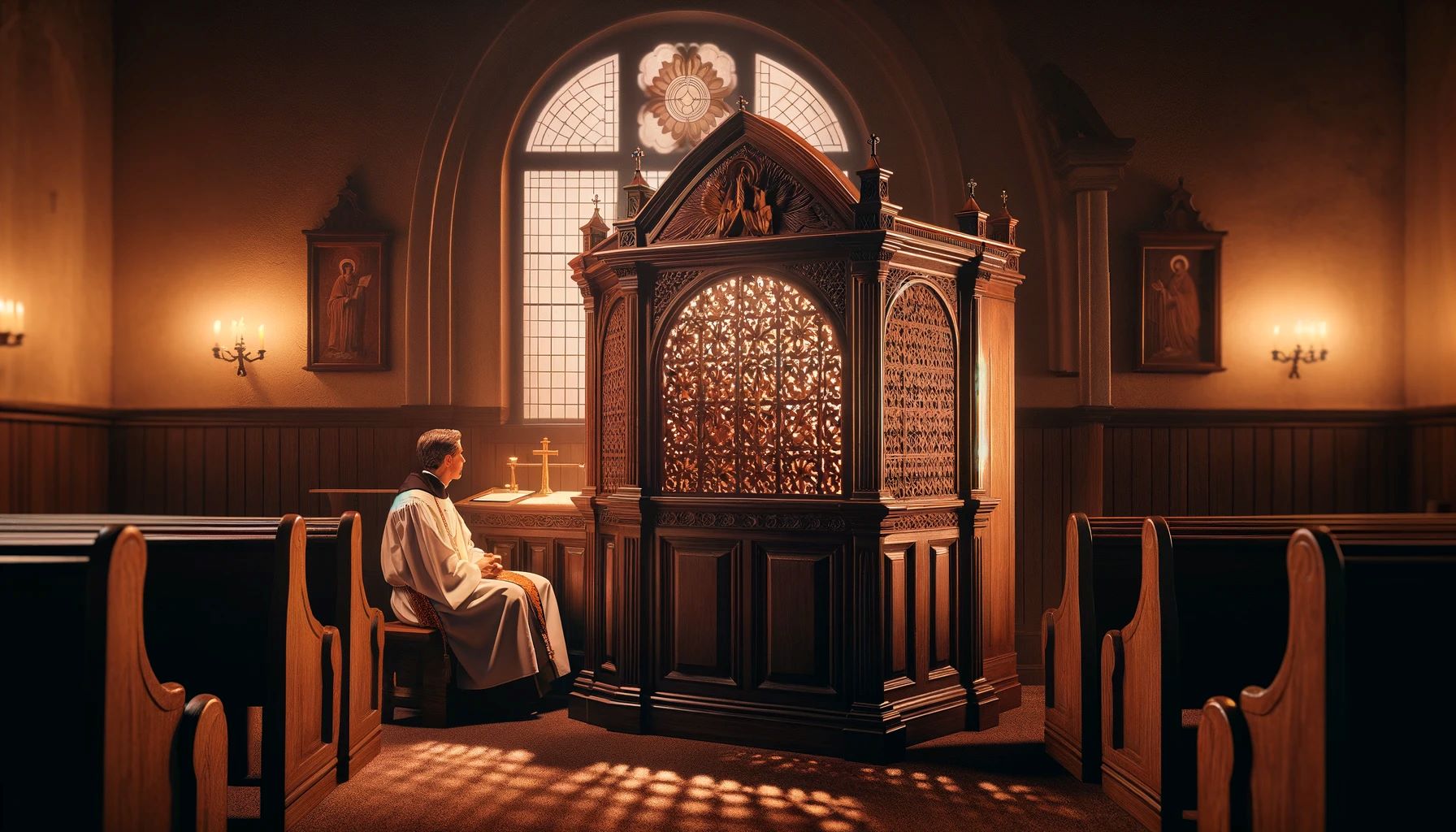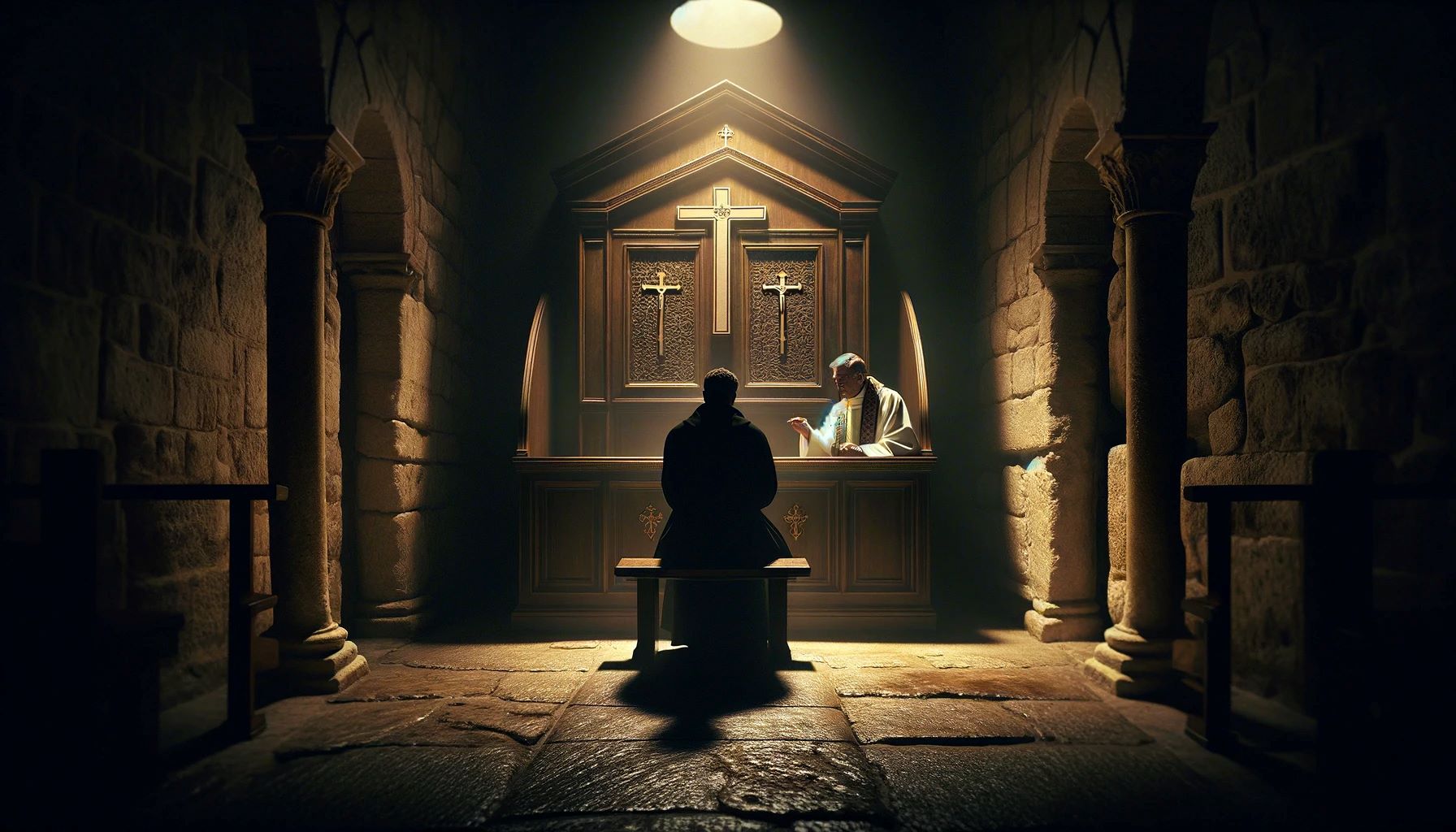Home>Christian Life>What Was The Augsburg Confession


Christian Life
What Was The Augsburg Confession
Published: March 4, 2024
Peter Smith, Editorial Director at Christian.net, combines deep insights into faith, politics, and culture to lead content creation that resonates widely. Awarded for his contributions to religious discourse, he previously headed a major organization for religious communicators, enhancing dialogue on faith's societal impacts.
Discover the significance and impact of the Augsburg Confession in Christian life, and its enduring influence on the history of Christianity. Explore its relevance today.
(Many of the links in this article redirect to a specific reviewed product. Your purchase of these products through affiliate links helps to generate commission for Christian.net, at no extra cost. Learn more)
Table of Contents
Introduction
What was the Augsburg Confession? The Augsburg Confession was a pivotal document in the history of the Christian faith, particularly within the Lutheran tradition. This confession was presented by the German princes and leaders of the Lutheran Reformation to Emperor Charles V in 1530. It was a bold statement of faith and a plea for religious tolerance and freedom. The Augsburg Confession sought to address the theological divisions within the Christian church and to establish the Lutheran understanding of key doctrines. In this article, we will delve into the historical background, key points, impact, and criticisms of the Augsburg Confession.
Read more: What Is The Sacrament Of Confession
Historical Background
-
The Reformation Movement: The 16th century was a period of significant religious upheaval in Europe. The Reformation, spearheaded by figures such as Martin Luther, sought to challenge the authority of the Roman Catholic Church and reform certain practices and doctrines.
-
Conflicts and Divisions: As the Reformation gained momentum, it led to deep divisions within the Christian church. These divisions were not only theological but also political and social, as various rulers and territories aligned themselves with different religious factions.
-
The Diet of Augsburg: In 1530, Emperor Charles V called for a meeting, known as a diet, in the city of Augsburg. The purpose of this gathering was to address the religious divisions and to seek a resolution that would restore unity within the Holy Roman Empire.
-
The Presentation of the Confession: In response to the emperor's call, the Lutheran princes and theologians presented the Augsburg Confession as a statement of their beliefs and a plea for religious tolerance. This document was intended to clarify the teachings of the Lutheran movement and to demonstrate their adherence to the core tenets of the Christian faith.
-
The Political Context: It's important to note that the presentation of the Augsburg Confession was not merely a theological gesture. It was also a strategic political move by the Lutheran princes to secure their rights and religious freedoms within the empire.
-
The Augsburg Confession as a Symbol: The Augsburg Confession became a symbol of the Lutheran identity and a foundational document for the Lutheran Church. It marked a significant moment in the history of the Reformation and the broader Christian tradition, shaping the course of religious development in Europe and beyond.
Key Points of the Augsburg Confession
-
Justification by Faith: The Augsburg Confession emphasizes the central Lutheran doctrine of justification by faith alone. It asserts that individuals are justified, or made right with God, not by their own good works, but solely through faith in the redeeming work of Jesus Christ.
-
The Authority of Scripture: This confession affirms the authority of the Bible as the ultimate source of Christian doctrine. It upholds the belief that the Scriptures are the inspired and infallible Word of God, and that they serve as the norm for faith and life.
-
The Sacraments: The Augsburg Confession addresses the understanding of the sacraments within the Lutheran tradition. It acknowledges two sacraments, Baptism and the Lord's Supper, and articulates the Lutheran perspective on their significance and practice.
-
The Priesthood of All Believers: It highlights the priesthood of all believers, emphasizing that all Christians have direct access to God and are called to serve as priests to one another. This concept challenged the hierarchical structure of the Roman Catholic Church at the time.
-
Church Practices and Traditions: The confession critiques certain practices and traditions that had developed within the Catholic Church, advocating for a return to the simplicity and purity of early Christian practices.
-
Civil Authority and Religious Freedom: The Augsburg Confession addresses the relationship between civil authorities and matters of faith. It asserts the right of rulers to govern civil affairs while also advocating for religious freedom and tolerance.
-
Unity and Reconciliation: While presenting distinct Lutheran beliefs, the confession also expresses a desire for unity and reconciliation within the Christian church. It seeks to demonstrate that Lutheran teachings are in harmony with the broader Christian tradition.
These key points encapsulate the theological and doctrinal positions articulated in the Augsburg Confession, shaping the identity and beliefs of the Lutheran tradition.
Impact and Legacy
The Augsburg Confession had a profound impact on the religious landscape of Europe and left a lasting legacy that continues to shape the Lutheran tradition and beyond. Its influence can be seen in the following ways:
-
Religious Identity: The Augsburg Confession solidified the distinct identity of the Lutheran Church, providing a clear articulation of its beliefs and practices. It served as a unifying force for those who aligned themselves with the Lutheran Reformation, establishing a theological foundation that continues to define the tradition.
-
Legal and Political Ramifications: The presentation of the Augsburg Confession at the Diet of Augsburg had significant legal and political ramifications. It laid the groundwork for the legal recognition of Lutheranism and other Protestant denominations, contributing to the broader acceptance of religious diversity within the Holy Roman Empire and beyond.
-
Theological Dialogue and Debate: The confession sparked extensive theological dialogue and debate, both within the Lutheran tradition and in interactions with other Christian denominations. It served as a point of reference for discussions on key doctrinal issues, contributing to the ongoing development of Christian theology.
-
Formation of Lutheran Churches: The Augsburg Confession played a pivotal role in the establishment of Lutheran churches and communities. Its doctrinal framework provided the basis for the organization and governance of these religious bodies, shaping their liturgical practices, educational institutions, and ecclesiastical structures.
-
Influence Beyond Lutheranism: While the confession was specifically crafted within the context of the Lutheran Reformation, its influence extended beyond the boundaries of Lutheranism. The theological principles and emphasis on key doctrines, such as justification by faith and the authority of Scripture, have resonated with diverse Christian traditions and contributed to broader theological discussions.
-
Continued Relevance: The Augsburg Confession remains a foundational document for Lutheran churches worldwide. Its teachings continue to inform preaching, teaching, and theological reflection within the tradition, serving as a touchstone for understanding the core beliefs of Lutheranism.
-
Symbol of Religious Freedom: The confession stands as a symbol of the pursuit of religious freedom and the right to conscientious belief. Its presentation at the Diet of Augsburg represented a bold assertion of religious liberty, and its legacy continues to inspire advocacy for religious tolerance and freedom of conscience.
The impact and legacy of the Augsburg Confession extend far beyond the historical moment of its presentation, shaping the ongoing narrative of the Lutheran tradition and contributing to the broader tapestry of Christian faith and practice.
Criticisms and Rebuttals
The Augsburg Confession, despite its significance and influence, has not been immune to criticisms and challenges. Various individuals and Christian denominations have raised objections to certain aspects of the confession, prompting robust rebuttals and defenses from proponents of the Lutheran tradition. Here are some of the key criticisms and the corresponding rebuttals:
Read more: What Are The 5 Steps Of Confession
Criticism: Doctrinal Disagreements
Some critics have contended that certain doctrinal positions articulated in the Augsburg Confession are at odds with their theological perspectives. They have raised objections to specific teachings, such as the Lutheran understanding of justification by faith alone and the sacraments.
Rebuttal:
Proponents of the Augsburg Confession have offered detailed theological arguments and scriptural exegesis to defend the doctrinal positions outlined in the confession. They have emphasized the scriptural basis for these teachings and have engaged in constructive dialogue with critics to address doctrinal disagreements.
Criticism: Historical Context and Interpretation
Critics have questioned the historical context in which the Augsburg Confession was formulated, raising concerns about the political motivations behind its presentation and the potential biases that may have influenced its content.
Rebuttal:
Advocates of the confession have provided historical context and nuanced interpretations of the events leading to the presentation of the Augsburg Confession. They have underscored the theological motivations behind the confession and have highlighted the broader quest for religious freedom and doctrinal clarity within the Lutheran Reformation.
Criticism: Ecclesiastical Practices and Traditions
Some critics have expressed reservations about the critique of certain ecclesiastical practices and traditions within the Catholic Church presented in the Augsburg Confession. They have raised concerns about the potential implications of challenging longstanding customs and rituals.
Rebuttal:
Supporters of the confession have offered explanations for the critique of ecclesiastical practices, emphasizing the commitment to biblical fidelity and the restoration of early Christian traditions. They have underscored the intention to uphold practices that align with scriptural principles and have sought to clarify misconceptions about the rejection of traditions for the sake of novelty.
Criticism: Political and Social Implications
Critics have raised questions about the political and social implications of the Augsburg Confession, particularly regarding its impact on the broader religious landscape and the potential for further divisions within the Christian church.
Rebuttal:
Defenders of the confession have addressed concerns about its political and social implications, emphasizing the commitment to religious tolerance and the pursuit of unity within the Christian church. They have highlighted the desire for constructive dialogue and reconciliation, seeking to allay fears of irreparable divisions.
In response to these criticisms, proponents of the Augsburg Confession have engaged in rigorous theological, historical, and contextual defenses, seeking to uphold the integrity of the confession and its enduring significance within the Lutheran tradition.














